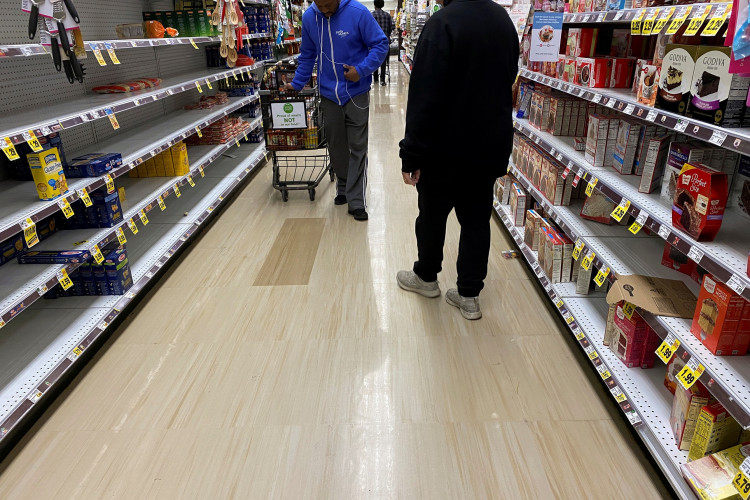At supermarkets across the U.S., empty shelves have reappeared as employees call out sick and truckloads of food arrive late.
That's one of the latest repercussions of the Omicron variant, which is stressing the workforce. A lengthier time of high expenses for labor, transportation, and food is expected, according to investors.
As the highly contagious Covid-19 virus continues to sicken workers, staffing shortages in vital operations such as transportation and logistics are hurting product delivery and retail shelf restocking across the country.
During Albertsons' earnings call with analysts on Tuesday, CEO Vivek Sankaran acknowledged that products are in short supply.
"We would expect more supply challenges over the next four to six weeks," Sankaran said.
According to the National Grocers Association, grocery stores are operating with less than their regular workforces, with many of their members utilizing less than half of their normal workforce.
Shares of major grocers such as Albertsons, Kroger, and Walmart fell on Tuesday. Albertsons shares plunged 9.75%t to $28.79 at market closing after the firm highlighted supply chain difficulties and inflated expenses on its results call. Even though the retailer upped its fiscal 2021 forecast, its stock took a nosedive. Kroger's stock sank almost 3%, while Walmart's fell less than 1%.
Workers shortages are being exacerbated by the new coronavirus variant across industries, from restaurants and commerce to aircraft. Company leaders are being forced to make painful decisions, such as lowering service hours, canceling flights, and closing stores. That has started to show up in the sales data, too.
Lululemon is one of the retailers that has warned that fourth-quarter profitability and revenue will be below projections due to fewer hours and a lack of workers.
Grocers, however, may face a greater struggle because it is a low-margin industry with limited room to boost staff wages, pay for overtime, or pass on extra expenses to customers. Some shoppers, on the other hand, have less money to spend. In December, the child tax credit, which provided families with monthly payments, came to an end.
The supply chain and grocery retailers' capacity to quickly replenish their shelves are being slowed by a continuing lack of truckers.
The continuous record-high level of congestion at the nation's ports is layered atop severe domestic transportation issues.
"Both of these challenges are working in tandem to create shortages," Phil Lempert, an industry analyst and editor of SuperMarketGuru.com, said.






